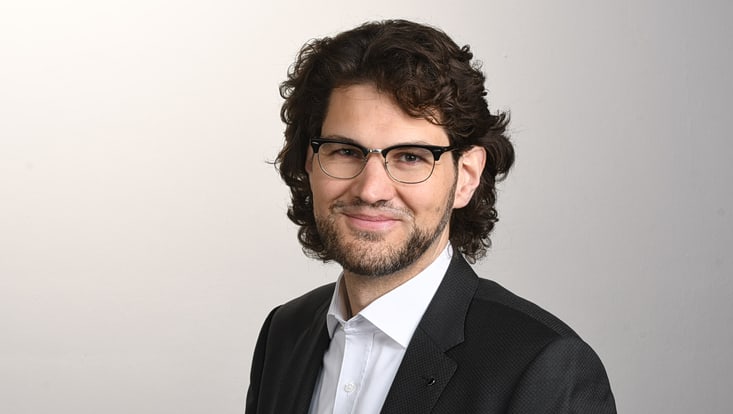Universität Hamburg student record-holder in freediving“There is nothing that makes me so relaxed”
6 June 2024, by Marie Schlicht
Tolga Taskin is studying information systems in his fourth semester and is also the German champion and Guinness record-holder in freediving. Freediving involves diving as deep and as long as possible without additional oxygen. In the interview below, Taskin tells us about how he began, his records, and why it’s best to take a short nap before diving.
Mr. Taskin, how did you start diving?
As a child, I spent the summer months with my grandparents in Turkey. They had a house directly on the sea, on the Turkish Aegean. If you grow up there, you learn to dive the way children in Germany learn to ride a bike. But not just diving, also hunting under water, harpooning, is part of Turkish culture. I always clung to my grandfather’s back and I dove with him to catch fish. So I have felt at ease in the water since my childhood.
When did you decide to become a freediver?
Because harpooning in Germany is prohibited, I practiced holding my breath—which is the basis. That’s how I find my way to freediving, where I discovered my new passion. At some point I noticed that the depths I could dive were approaching records. In 2019, I broke the German record in freediving: with a single breath, I dove 60 meters deep in the Kreidesee in Lower Saxony. In 2020, I broke the Guinness world record in Weissensee in Austria. It was the deepest dive with a single breath under the ice surface. It was 74.8 meters and I was under water for 4.5 minutes.
How do you prepare for such a long time under water?
There are breathing and mental-training techniques that I use. For example, relaxation exercises that you use in yoga: breathing out twice as long as breathing in. When I do that for a long time, I activate a part of my nervous system responsible for relaxation. Actually, I do exactly what I do to fall asleep. I lie down, I close my eyes, and I let my mind wander. I really have the best dives when I fall asleep briefly right beforehand. I can take this relaxation into the depths with me.
Do you also use these kinds of tactics when you are under water?
Yes. Then the mental training is relevant. At the beginning, you are still relaxed, totally in the moment, and you let your mind wander. At some point, naturally, the desire to breathe, the so-called “struggle phase” kicks in. There are different techniques for this, such as visualizing a pleasant place. But you still definitely have to pay attention to physical signs. The limit is feeling faint and of course, it should never get this far. For safety’s sake, however, there is always someone at the rim of the water during a dive to pay attention. The most important thing is: never dive alone. That would be like climbing without backup. When I dive, there is always also another freediver so that I am accompanied for half of the stretch upwards, right where it can become critical.
Do the techniques also help you in your studies?
Definitely. In moments of stress, I use breathing and relaxation techniques. What most helps me, however, is to know that I can go back in the water in the evening. When you hold your breath, you activate your mammalian diving reflex. This leads to a series of adjustments in your body. One of those is bradycardia, the slowing-down of your heart rate. When I even think of diving, I trigger the reflex and I relax.
Most people probably don’t associate holding your breath with relaxation. Can you train that?
Everyone can learn it. You get used to it physically and mentally. Freediving is not something where you have to suffer. On the contrary: it is one of the most beautiful ways to find some equilibrium. There is nothing that makes me so relaxed. When I dive, I don’t think at all that I can’t breathe. I am simply under water as long as I feel comfortable. When I feel the need to breath, I swim back up.
You now have your own diving schools. Is this why you decided to study business administration?
Yes. So far, my business consists of referring people interested in diving to diving schools. The schools and the trainers are insured through me and get equipment. They don’t have to worry about anything except offering the courses.
Podcast with Tolga Taskin
Tolga Taskin talks more about freediving in this podcast from Deutschlandfunk Nova.







